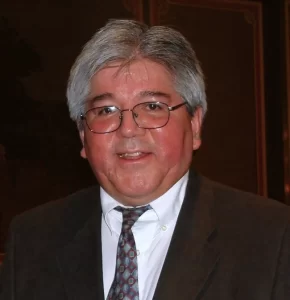Anishinabek Nini elected into the Canadian Academy of Engineering

By Rick Garrick
OTTAWA — Wiikwemkoong Unceded Territory’s Irving (Bing) Leblanc was recently elected into the Canadian Academy of Engineering on May 15 as one of 50 new fellows and seven international fellows. The Induction Ceremony is scheduled for May 27 in Montréal.
“It’s really a great honour in terms of being recognized by my peers, other engineers across the country, engineers I’ve worked with, engineers who know what I do and what I’ve done over the years,” says Leblanc, a retired engineer who is currently chair and chief innovation officer at the Community Circle. “I’ve worked with First Nations since 1995, when I left the Canadian National Railway and started with Ontario First Nations Technical Services Corporation — they provide engineering and technical services advice to all of the First Nations in Ontario.”
Leblanc, who also worked with the Assembly of First Nations, credits his father for developing his interest in technical issues, noting that he studied civil engineering at the University of Waterloo.
“I look at what’s going on today and how fortunate our young Indigenous students are to have the support they have now at universities in terms of Indigenous support,” Leblanc says. “We didn’t have that, we were pretty well on our own. I’m glad to see that support today that provides support for a lot of First Nations students right now, not only for STEM, Science Technology, Engineering, and Math courses, but also other areas.”
Leblanc says one of his passions is to encourage more First Nation students, especially female students, to pursue careers in engineering and technology.
“I’m really happy to learn now that many of these technicians and engineers are women,” Leblanc says. “That’s really one of the great strides of not only just the engineering profession but our own people in terms of encouraging students to take up STEM. And it starts at the elementary school, pretty well by the time they reach high school, if they haven’t been taking that training it’s very hard to get into engineering at university because they don’t have the background.”
Leblanc says he was also honoured with three Eagle Feathers on different occasions for his work over the years, including by Anishinabek Nation Grand Council Chief Linda Debassige and a group of women when she was the Chief of M’Chigeeng, at a Chiefs of Ontario Special Chiefs Assembly.
“That was really moving,” Leblanc says. “The drum also did an Honour Song for me, and that is the time when I said the smudge smoke got in my eye — I was so overwhelmed at that point. The Grand Chiefs that were in the room, they all stood up and stood beside me.”
Grand Council Chief Debassige says she worked a lot with Leblanc when she was the Chief of M’Chigeeng in the portfolios she held at the Anishinabek Nation, Chiefs of Ontario, and Assembly of First Nations.
“I worked with him directly on infrastructure files and First Nations water issues and so on and so forth,” Grand Council Chief Debassige says. “He’s an engineer, I went to school for engineering training, finished school, and then I go into leadership, so I’ve been Chief and now Grand Council Chief, and throughout the whole time, I’ve been working with him.”
Grand Council Chief Debassige says Leblanc has, over the course of decades, been advancing and advocating for the need for proper water and wastewater systems for First Nations, as well as addressing gaps in infrastructure and housing.
“We had honoured him at a Chiefs of Ontario assembly about a year ago, we had an honouring for him for all of his work, his dedication, and his sacrifices to ensure that we were always continuously advocating for the needs of our nations,” Grand Council Chief Debassige says. “We honoured him at the Chiefs of Ontario assembly with an Eagle Feather and some gifts to recognize his work, his lifelong dedication to our First Nations communities and our First Nations people, and his clear regard and respect for leadership and always working towards equipping our leadership with the necessary tools to advance really productive advocacy strategies.”
Grand Council Chief Debassige says Leblanc always worked in the background, with many of the Chiefs across the Anishinabek Nation, Chiefs of Ontario, and Canada.
“He was always available,” she says. “During his tenure with the [Assembly of First Nations], he was always available for calls, always providing as much support as he can, so that was the reason for his honouring — to honour his dedication and his life’s work to improve the lives of our First Nations citizens.

